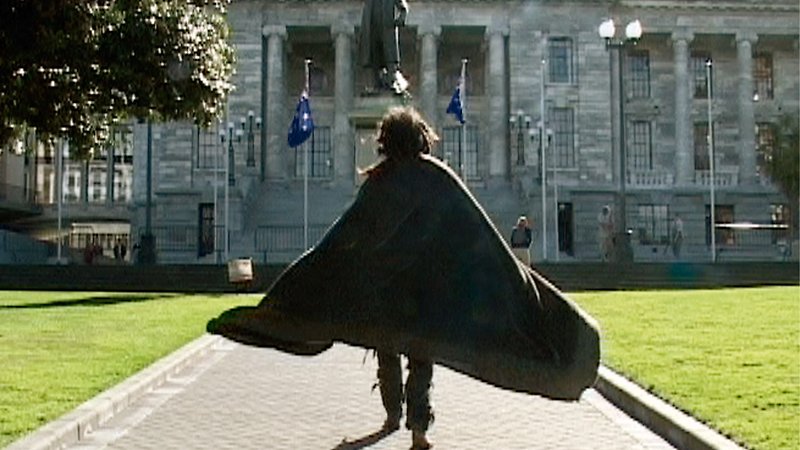
Screened as part of NZIFF 2003
Te Whanau o Aotearoa - Caretakers of the Land 2003
Te Whanau o Aotearoa is an observational documentary that gets up close to a man known to many Wellingtonians as 'Blanket Man', 'Ben Hana' or 'That homeless Māori guy who sits in Cuba Mall'. His name for himself is the Brother. He arrived in Wellington late summer 2001 and began living in Cuba Mall. In 2002 he was arrested and held in prison for seven weeks. Charges were dropped, but he was arrested again, for smoking his peace pipe in Cuba Mall. He was released on condition of bail that he not go back to the Mall. During the course of this film we see him moved on from two further public spaces.
'Te Whanau o Aotearoa' is the name, intended to be understoof as pan racial as well as pan tribal, that the Brother gives to those who support his similarly named proposal to return the land to the people. Amongst them, filmmakers Errol Wright and Abi King-Jones share the view that the homeless, landless people who live with the Brother on the streets of Wellington are, at the very least symbolically, indeed 'caretakers of the land'. This is not a view shared, from his Bowen House window, by Winston Peters; nor, from closer to the action, by the Dominion Post, the police or even Nandor Tanczos, when the Brother establishes a 'village of peace' at the Cenotaph outside the gates of Parliament.
Powerlessness is germane to the Brother's advocacy. (Offered his moment to address the people of New Zealand he says hello and laughs.) His project lends itself to art more readily than to politics. The picture of a pure, disinherited man whose very disconnection from the world that swirls around him is a critique of that world, is essentially a poetic one. What makes the picture compelling in this film is that it's so grounded in the realities of life on the streets. Wright, who was invited by Brother to film him, joined the whanau in September and October last year and shot 64 hours of footage, much of it involving severe, often voluble, disenchantment of the Brother's posse. Their corrosive, sometimes hilarious views on the Minister for Social Welfare, the leader of New Zealand First and the Louis Vuitton Cup remind us bluntly that they are caretakers of exactly the same land as all the rest of us. — BG